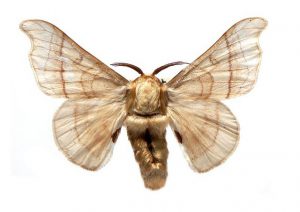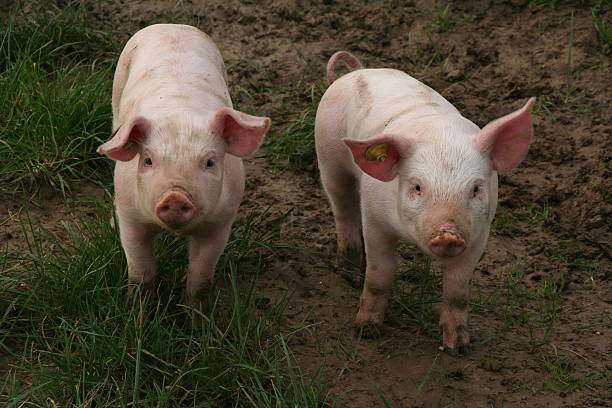If you saw Ocean’s Thirteen, you’ll remember the scene where Matt Damon’s character uses a pheromone product called “The Gilmore” to produce overwhelming desire in the character played by Ellen Barkin. It’s no surprise that prospect of human pheromone products that deliver what they promise has generated so much interest. Who doesn’t like the idea of having potential partners literally throwing themselves at you with one little spritz? But do pheromones really work?
So what’s the story about human pheromones? There are thousands of websites that guarantee sexual conquests if you buy their pills. There are also tons of fragrance products out there that claim to contain pheromones that will give you a leg up in meeting and attracting anyone you desire.
Do pheromones actually work or is this a huge rip-off?
It’s long been known that animals announce their sexual status through biochemical bouquets known as pheromones. Pheromones – chemical secretions that elicit unlearned behavior or responses from others of the same species – act to regulate sexual and reproductive behavior in nonhuman animals.
In addition to producing sexual arousal in the animal population, pheromones can trigger other types of behavior including:
- To follow a food trail
- Alarm
- To tell other female insects to lay their eggs elsewhere (epideictic pheromones)
- To back off or respect a territory
- To bond (mother/child)
Gustav Jager (1832-1917), a German doctor and hygienist is widely regarded as the first person to put forward the idea of human pheromones. He called them “anthropines”, popularly dubbed “lust compounds”. According to Jager, they were lipophilic compounds associated with skin and follicles that mark the individual signature of human odors. At the time, his ideas were too far ahead of the possibilities of chemistry and the life sciences to be corroborated by experiments. (Wikipedia.org)
The term “pheromone” itself came about in 1959 with the discovery of bombykol, a powerful aphrodisiac secreted by female silk moths that can  travel over kilometers of distance. According to Tristam Wyatt, a zoologist at the University of Oxford: “The males are enormously sensitive to it. Just a few molecules are enough to get the male to fly to the female.” (Scientific American, July 1974)
travel over kilometers of distance. According to Tristam Wyatt, a zoologist at the University of Oxford: “The males are enormously sensitive to it. Just a few molecules are enough to get the male to fly to the female.” (Scientific American, July 1974)
Despite numerous studies on humans since then, scientists haven’t yet been able to identify a single human pheromone. To demonstrate that pheromones actually work, researchers would need to identify the molecules responsible which they have not yet been able to do.
States Wikipedia:
Although there are disputes about the mechanisms by which pheromones function, there is evidence that pheromones do affect humans. Despite this evidence, it has not been conclusively shown that humans have functional pheromones. Those experiments suggesting that certain pheromones have have a positive effect on humans are countered by others indicating that they have no effect whatsoever.
In addition, there are two main reasons why pheromone products being sold now don’t work. Humans aren’t just like animals.
While pheromones may be a natural way to attract others, no two people are the same when it comes to how they will react. Essentially there’s no such thing as a pheromone that works for everyone.
The even bigger reason is that the fragrances supposedly containing this magical ingredient aren’t even chemically built for humans. Most of these products contain three compounds – Androstenone, Androstadienone and Androstenol – which have demonstrated proven results but only if the object of your desire is a pig. The compounds have been isolated from pigs and have proven to be effective on pigs but there’s absolutely no evidence that they work on humans.
Science will no doubt continue to advance and the search to identify a human pheromone will undoubtedly go on. When and if this does happen, whoever gets the patent on it is going to make a fortune. For now though, while scent can absolutely make you feel sexier, fragrance isn’t actually an aphrodisiac. The boost of confidence the right perfume helps create can definitely be a huge turn-on though.
Until the next time,




What an informative article! It looks like sexual attraction won’t come in pill form for for a good while still. You made me laugh when you talked about the three compounds that have been proven to work – if you want to attract a pig! I will subscribe and follow you on Facebook, I think your Website is really great.
Sylvie
Hi Sylvie,
There seems to be a pill for everything so maybe that will be next. Kind of a scary thought though!
Thanks for the follow and for dropping by:)
Erica
Hi Erica!
I guess it’s all about chemical reactions in humans as well as in animals. I mean, some perfumes can create a sense of attraction to some people (and I’m not talking the Axe effect), whay? That I don’t know, as you said science is going to have to look deeper into it 😉
Thanks for sharing your insights on this topic, it’s really interesting. I’ve always been fascinated by human behavior, we can be so complicated sometimes, and so predictable on other occasions…
Cheers!
Israel
Hi Israel,
Although research is ongoing, scientists have determined that an important part of human attraction resides in our genes. It turns out that two people with different immunity genes find each other more irresistible than two people with the same immunity genes. What’s more, people use perfume to enhance the smell of their immunity genes. So if you love your perfume, that’s one step down the right road to finding that special someone.
Happy Friday!
Erica